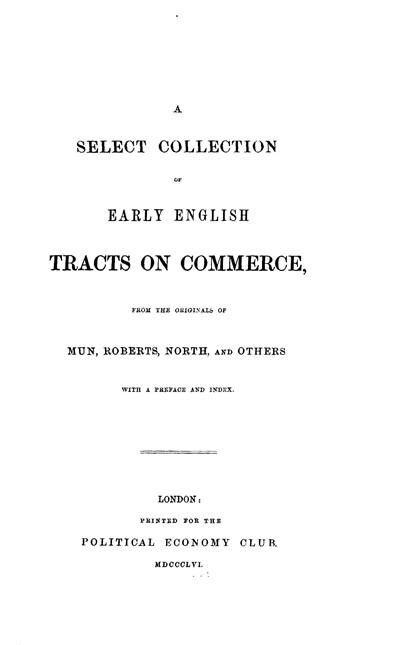
A Select Collection of Early English Tracts on Commerce (1856)
- Sir Dudley North (author)
- Samuel Fortrey (author)
- Lewes Roberts (author)
- Thomas Mun (author)
- John Ramsay McCulloch (author)
A collection of eight early English tracts on trade and commerce edited by John McCulloch for the Political Economy Club. It includes works by Thomas Mun, Lewes Roberts, Samuel Fortrey, and other anonymous authors.
Key Quotes
Economics
But private advantages are often impediments of publick profit; for in what any single person shall be a loser, there, endeavours will be made to hinder the publick gain, from whence proceeds the ill succes that commonly attends the endeavours for publick good; for commonly it is but coldly…